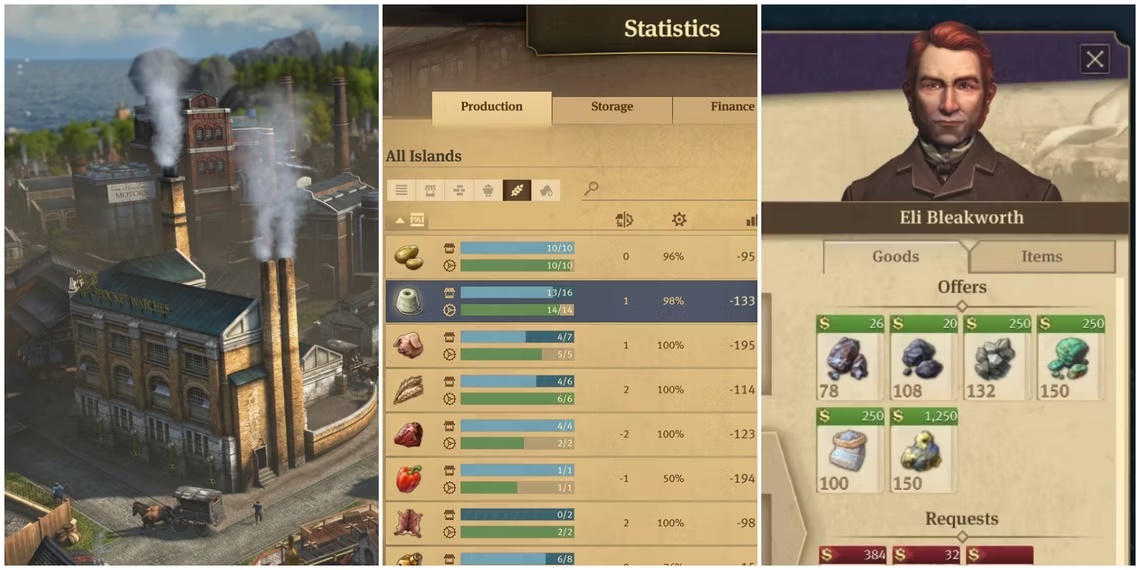Anno 1800 is a challenging strategy game with numerous traps for inexperienced players. Here are some pointers for beginners.
Anno 1800 Console Edition has finally made its way to console gamers. After several polarising futuristic outings, it’s one of the Anno series’ most promising games. Despite the return to a simpler style because it takes place in the past, it’s still an overpowering Anno game in which players are bombarded with socioeconomic difficulties every minute or so.
If players desire to minimise the frequency of those assaults or challenges (maybe to once per couple of minutes), a good start will be quite beneficial. Some city-building advice is in order so that the player’s lovely Victorian city does not collapse due to a lack of beer, among other apocalyptic issues.
Be Picky With The Starting Island

When a city or town runs out of beer (or other Needs or Happiness supplies), it can quickly become a domino effect because people will literally abandon the city or town. That is why it is advantageous to begin the game by selecting an island with the following natural resources:
- Potato
- Grain
- Hops
- Iron
- Oil
Having all of those on one island eliminates the need for players to rush island expansions, potentially stretching their building resources or even unwittingly creating foes. This type of system is nearly self-sustaining, with the main exception being Pepper, which is easily traded.
Use Grids For Housing
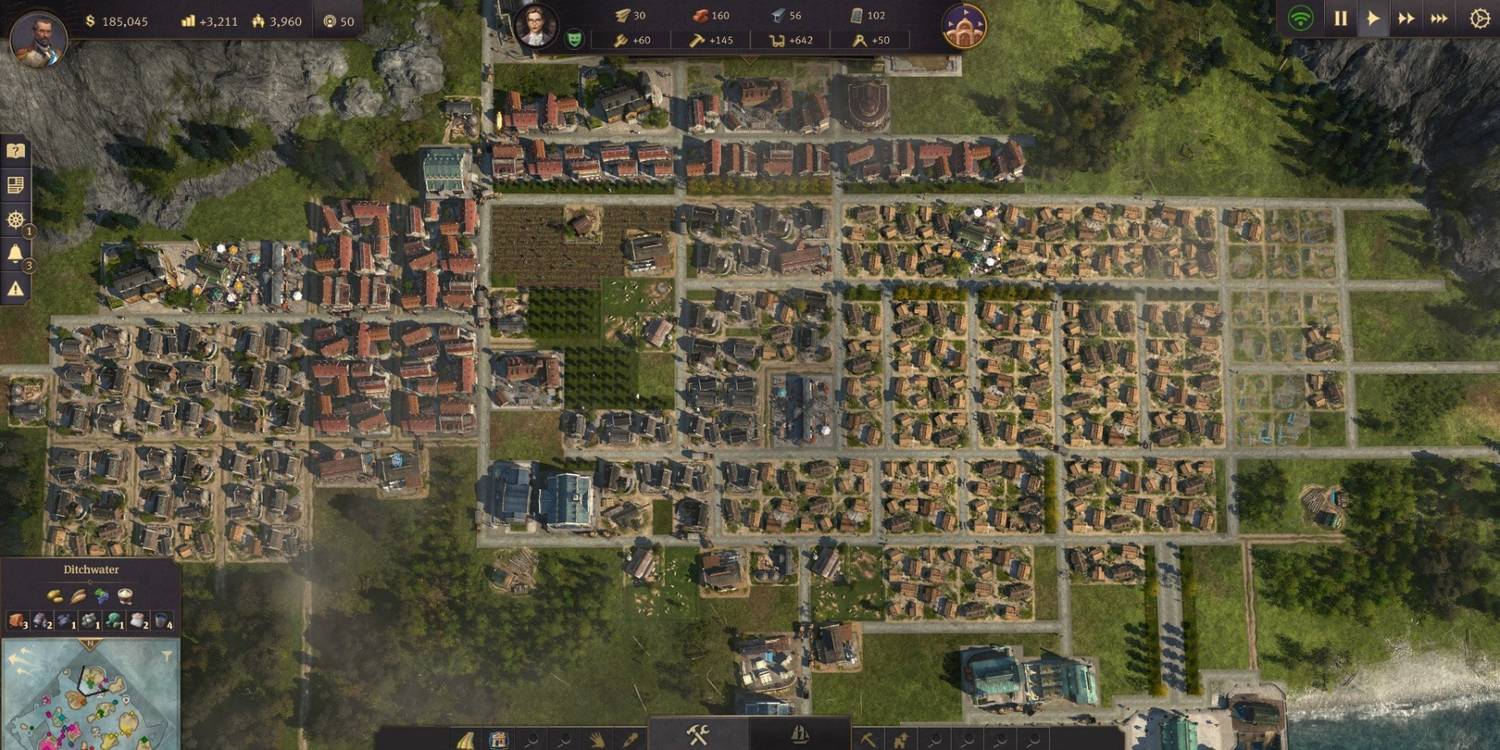
There are numerous approaches to decide the layout for neighbourhoods when it comes to housing, but it almost always comes down to efficiency, and 2×2 or 3×3 (housing plot grids) are the most efficient. Basically, anything square outperforms the majority of other layouts.
The squares are modular and adaptable. Players can also place utilities such as the Market in the centre of many squares to gain access to the majority of dwellings. This removes the need for many amenities facilities, which are costly to maintain.
Utilize Blueprint Mode For City Planning
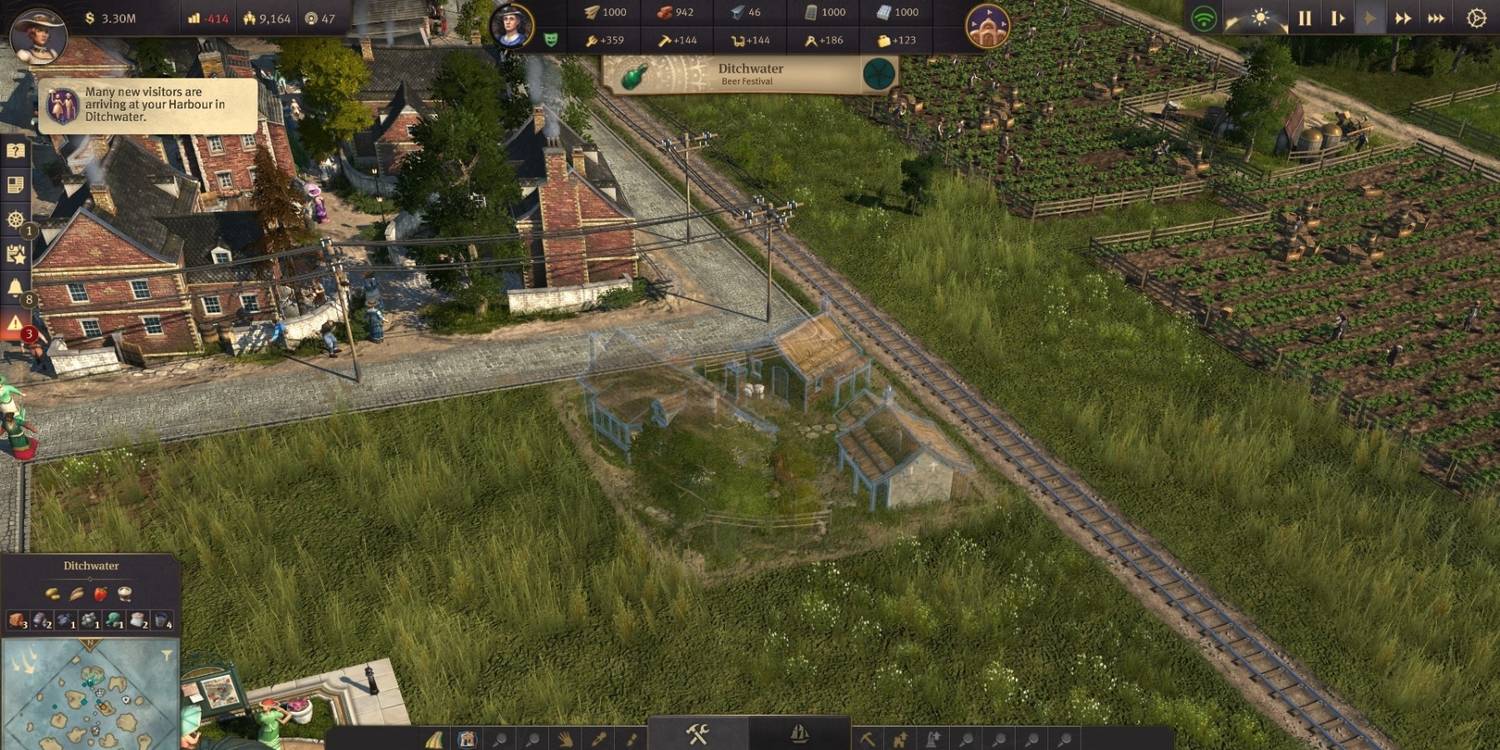
Blueprint mode is required to better plan out dwelling plans, unless players are content to waste time and money on relocations and destroying. Blueprint mode is functional and accessible even if players do not have the necessary funds or resources (they must commit to the build afterwards).
This allows players to create roads around building plots rather than the other way around (which can be frustrating). It’s also a simple way to see if there’s enough room on an island for dense housing or the traditional square grid layouts.
Don’t Upgrade All Houses

It may seem appealing to better everyone’s life in a socialist utopia in which farmers and labourers are well-paid and enjoy the same level of living as white-collar citizens, but Anno 1800 disagrees. After all, this is the Victorian age. Some residents in the city of the players will have to stay poor peasants or workers.
It’s all because of how the game manages its labour pool, which is separated into social classes. It assures that players will always require members of lower socioeconomic classes to do the nasty work in their town. Furthermore, wealthier socioeconomic strata in Anno 1800, beginning with the Artisans, have higher demands or wants and are thus more difficult and costly to keep pleased.
Constantly Check On The Production Chart
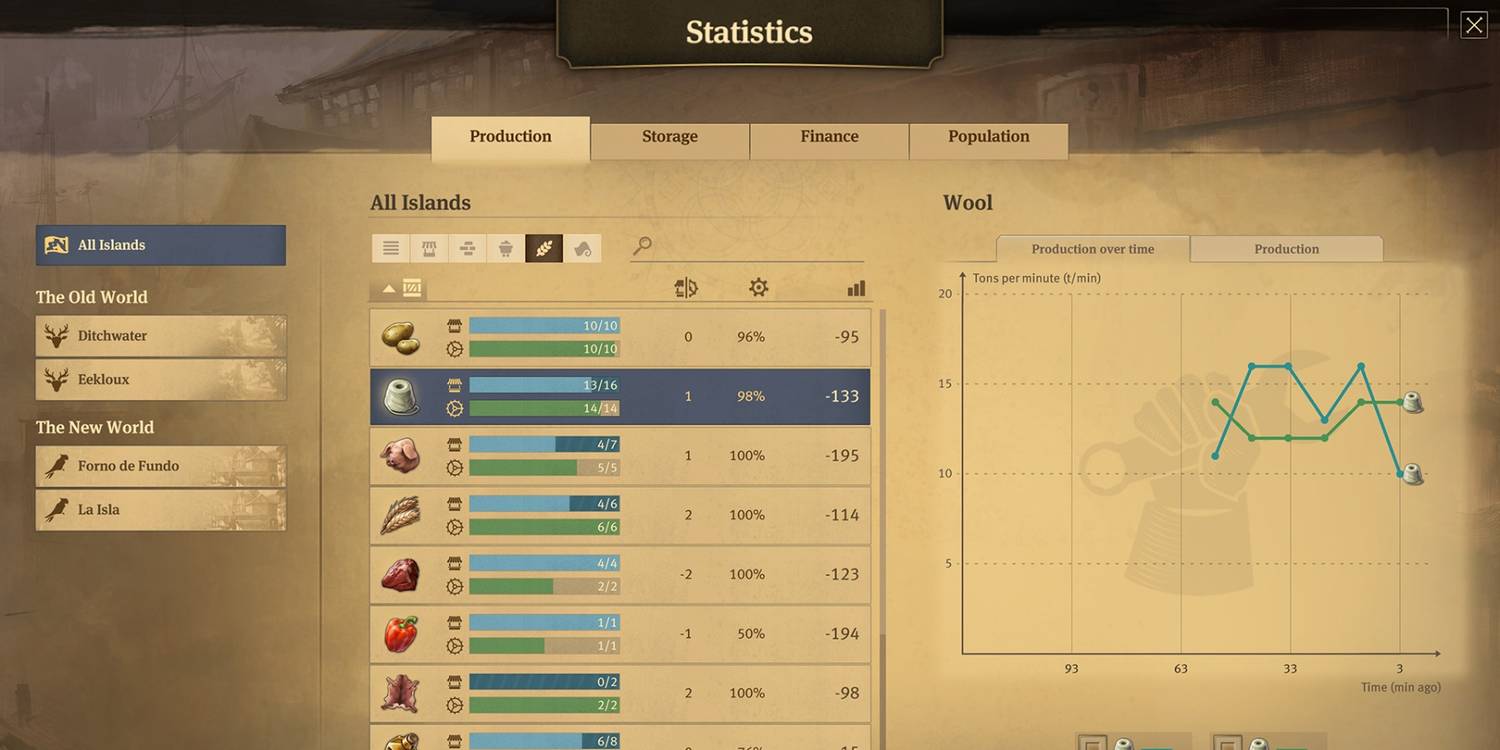
The key to keeping things running well in Anno 1800 is to continuously checking the Production or Statistics tabs like a neurotic taskmaster. Because the Production chart (accessed via the radial menu) displays the supply and demand for all of the materials produced on the island.
So much of city management in Anno 1800 is concerned with balancing supply and demand, mostly by maintaining both numbers the same or by keeping the supply number greater than the demand. Otherwise, there will be a scarcity of resources, and residents would flee the city.
Don’t Be Afraid To Buy Resources
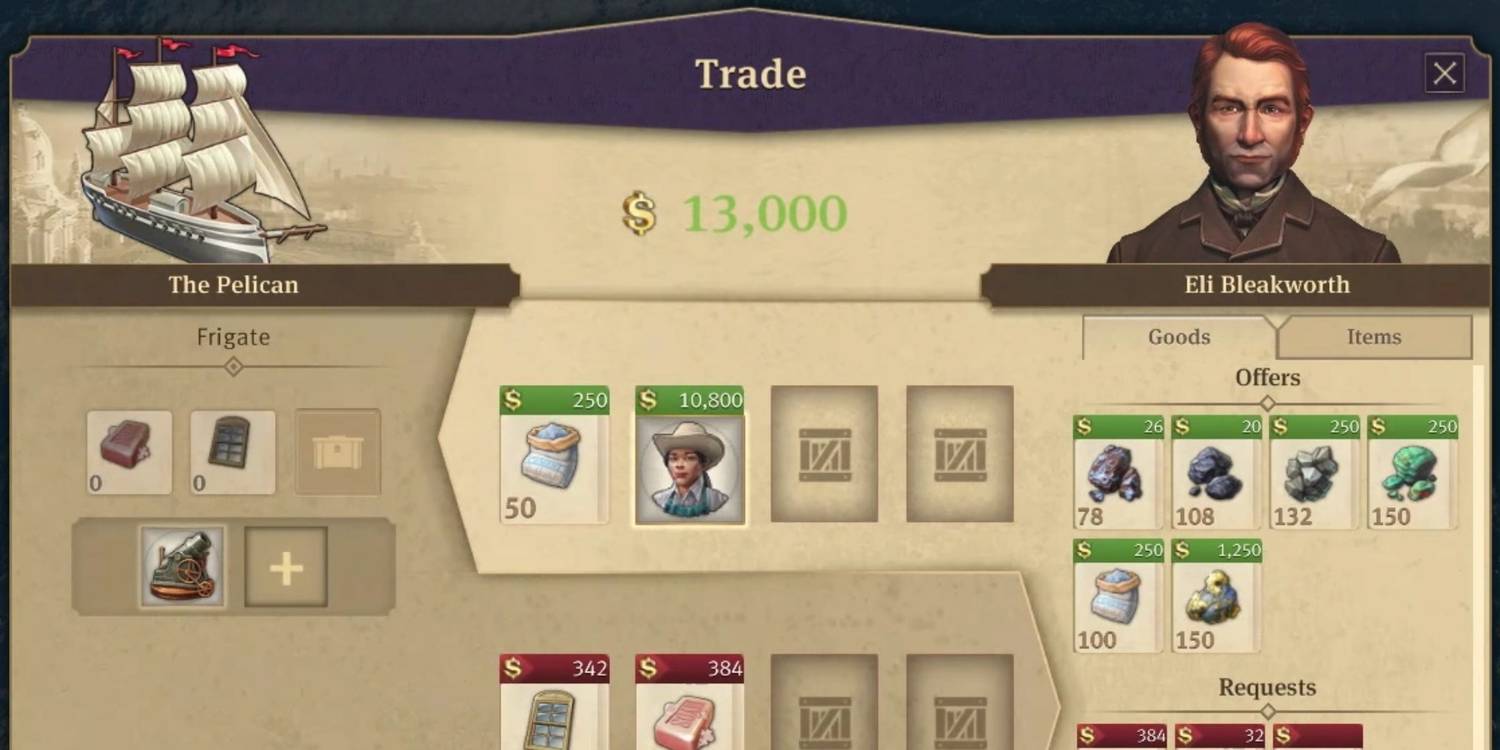
At certain stages in Anno 1800, players will frequently run out of resources, particularly those required for construction, such as wood, bricks, steel beams, windows, and so on. While being self-sufficient is beneficial in Anno 1800, the island’s resources and labour can only create so much before the demand for building materials overcomes the production capability.
If players absolutely need to pave those roads or build those ships, they’re better off importing the necessary resources from other factions. Their treasury may suffer as a result, but if the resources help streamline production or improve citizens’ financial situations, the payback will be worthwhile.
Build Only What’s Needed
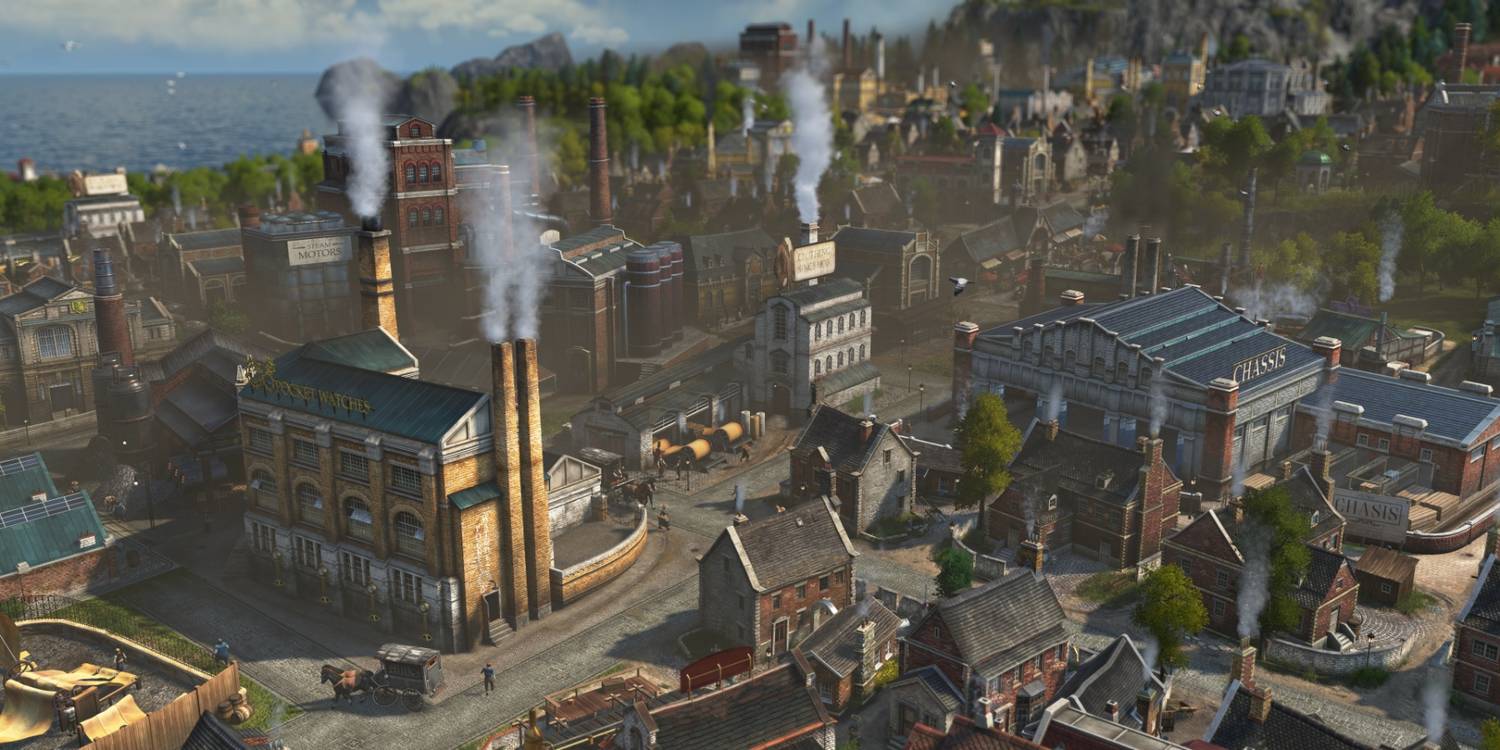
The primary expense in Anno 1800 is the upkeep of all buildings, particularly industrial ones. Too many of them can soon turn a city’s treasury crimson and halt its progress. Players are better off building only what is required to maintain a balanced supply-demand ratio of 1:1.
Players can maintain their revenues positive in this manner. There are few exceptions, such as soap and other items that can be traded or sold to NPC traders or even other A.I. factions. However, for anything else that will not sell, it is advisable to manufacture only what is required.
Buy Low & Sell High
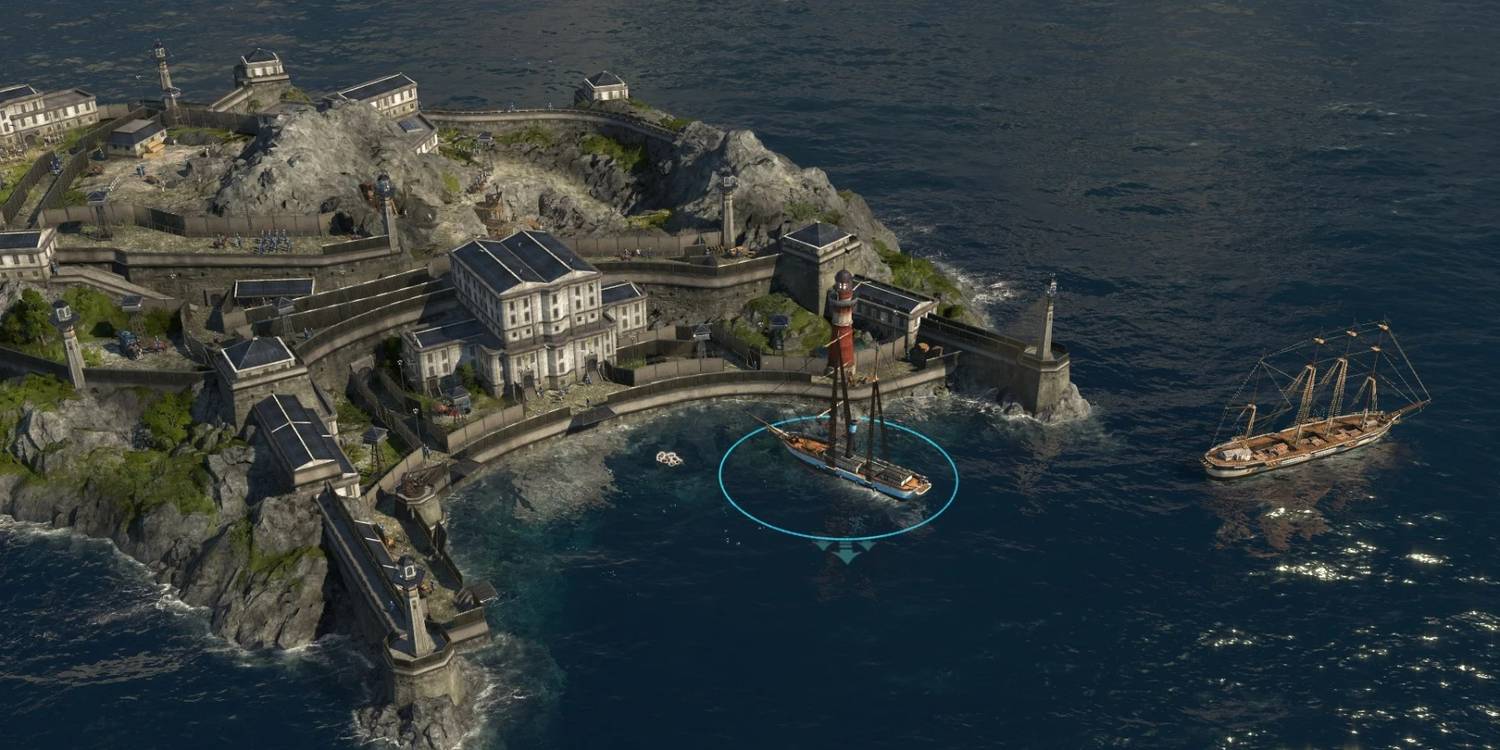
Speaking of soap, it’s one of the most prevalent ways to become wealthy in Anno 1800. Eli Bleakworth, the NPC trader who operates the prison island, will always buy Soap for his inmates (for bathing and possibly other soap-related activities in prison).
Aside from creating an excess of Soap on their island, players can also stockpile all of the Soap from other traders or even buy Soap from A.I. groups for a lesser price and then sell it all to Eli for a greater price. Those inmates really go through a lot of soap. The same applies to other in-demand resources from other NPC traders.
Wars Are Expensive

Some A.I. factions may be excessively abrasive or aggressive with expansions when playing with other A.I. factions, making them ideal targets for war declarations. However, wars are frequently financial traps for players, just as they are in real life. Ships are very easily destroyed, and Anno 1800’s battle system isn’t particularly deep.
Players will largely be launching their wooden ships into their opponents’ harbours in the hopes of breaching the mounted gun emplacements. As expected, this consumes a large amount of Wood, Steel, Weapons, Sails, and people, especially if players have numerous shipyards. It’s not worth the difficulty just to get your hands on those peppers or hops. Simply exchange for them.
Take It Slow

It’s easy to feel overwhelmed or scared in Anno 1800, but learning to embrace it is what differentiates the series’ veterans from those who give up once their residents begin to emigrate or the treasury begins to go into negative territory. Backrooms is not a game that should be rushed.
To make things easier, players should avoid pushing their residences to Artisansor higher or building too many Steel factories to speed up supply lines. Improvements and progress will come; additionally, there is always a pause button for when society becomes too chaotic.
Anno 1800 is available on PlayStation 5 and Xbox Series X and Series S, as well as Microsoft Windows.

